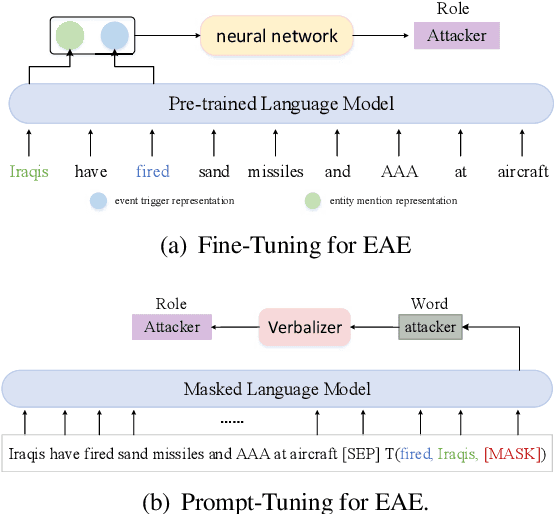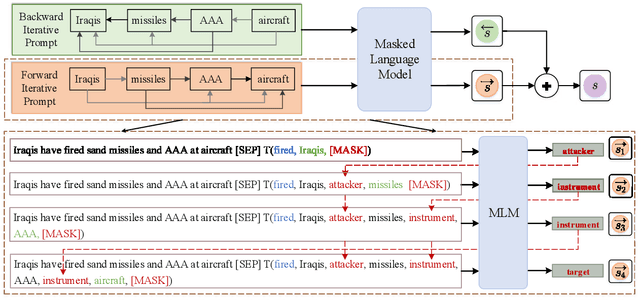Yijun Mo
Adaptive Prompt Learning with Distilled Connective Knowledge for Implicit Discourse Relation Recognition
Sep 14, 2023



Abstract:Implicit discourse relation recognition (IDRR) aims at recognizing the discourse relation between two text segments without an explicit connective. Recently, the prompt learning has just been applied to the IDRR task with great performance improvements over various neural network-based approaches. However, the discrete nature of the state-art-of-art prompting approach requires manual design of templates and answers, a big hurdle for its practical applications. In this paper, we propose a continuous version of prompt learning together with connective knowledge distillation, called AdaptPrompt, to reduce manual design efforts via continuous prompting while further improving performance via knowledge transfer. In particular, we design and train a few virtual tokens to form continuous templates and automatically select the most suitable one by gradient search in the embedding space. We also design an answer-relation mapping rule to generate a few virtual answers as the answer space. Furthermore, we notice the importance of annotated connectives in the training dataset and design a teacher-student architecture for knowledge transfer. Experiments on the up-to-date PDTB Corpus V3.0 validate our design objectives in terms of the better relation recognition performance over the state-of-the-art competitors.
Bi-Directional Iterative Prompt-Tuning for Event Argument Extraction
Oct 28, 2022



Abstract:Recently, prompt-tuning has attracted growing interests in event argument extraction (EAE). However, the existing prompt-tuning methods have not achieved satisfactory performance due to the lack of consideration of entity information. In this paper, we propose a bi-directional iterative prompt-tuning method for EAE, where the EAE task is treated as a cloze-style task to take full advantage of entity information and pre-trained language models (PLMs). Furthermore, our method explores event argument interactions by introducing the argument roles of contextual entities into prompt construction. Since template and verbalizer are two crucial components in a cloze-style prompt, we propose to utilize the role label semantic knowledge to construct a semantic verbalizer and design three kinds of templates for the EAE task. Experiments on the ACE 2005 English dataset with standard and low-resource settings show that the proposed method significantly outperforms the peer state-of-the-art methods. Our code is available at https://github.com/HustMinsLab/BIP.
 Add to Chrome
Add to Chrome Add to Firefox
Add to Firefox Add to Edge
Add to Edge